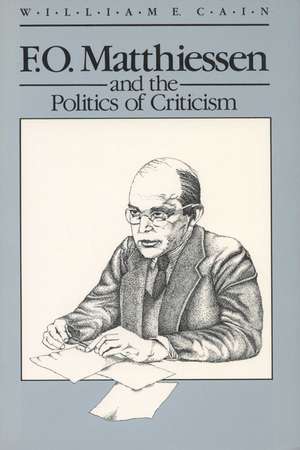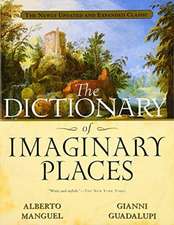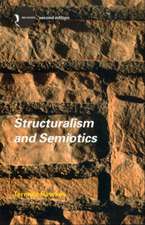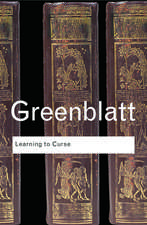F.O. Matthiessen and the Politics of Criticism: Wisconsin Project on American Writers
Autor William E. Cainen Limba Engleză Paperback – 14 oct 1988
F.O. Matthiessen remains one of America’s leading twentieth-century critics in part because the problems he and his contemporaries struggled with remain ours today. William E. Cain studies Matthiessen’s career with careful attention to biographical, institutional, literary, and political contexts. He considers Matthiessen’s many reviews and essays on literature and deals sympathetically, but critically, with Matthiessen’s attitudes toward the Cold War as revealed in his memoir, From the Heart of Europe.
Cain draws connections between Matthiessen’s criticism and the influence of significant political movements like the Popular Front of the 1930s, the Progressive Party, and Henry Wallace’s campaign for the presidency in 1948. Analyzing specific texts by Thoreau, James, Dreiser, and Melville, he confronts the difficult and highly contested relationships between literary criticism and politics, scholarship and the public sphere, pedagogy and social activism. He suggests that critics need to acknowledge the primacy of their political commitments and should proceed to teach and write accordingly. This argument, certain to prove a controversial one, will spark extensive debate and discussion about the theory and practice of intellectual work.
All students and scholars of English and American literature, American studies, black studies, and American history will welcome this original and stimulating study, the first to treat Matthiessen in fully detailed social, historical, and political contexts.
Cain draws connections between Matthiessen’s criticism and the influence of significant political movements like the Popular Front of the 1930s, the Progressive Party, and Henry Wallace’s campaign for the presidency in 1948. Analyzing specific texts by Thoreau, James, Dreiser, and Melville, he confronts the difficult and highly contested relationships between literary criticism and politics, scholarship and the public sphere, pedagogy and social activism. He suggests that critics need to acknowledge the primacy of their political commitments and should proceed to teach and write accordingly. This argument, certain to prove a controversial one, will spark extensive debate and discussion about the theory and practice of intellectual work.
All students and scholars of English and American literature, American studies, black studies, and American history will welcome this original and stimulating study, the first to treat Matthiessen in fully detailed social, historical, and political contexts.
Preț: 130.83 lei
Nou
Puncte Express: 196
Preț estimativ în valută:
25.04€ • 27.21$ • 21.05£
25.04€ • 27.21$ • 21.05£
Carte tipărită la comandă
Livrare economică 21 aprilie-05 mai
Preluare comenzi: 021 569.72.76
Specificații
ISBN-13: 9780299119140
ISBN-10: 0299119149
Pagini: 288
Dimensiuni: 138 x 215 x 13 mm
Greutate: 0.31 kg
Editura: University of Wisconsin Press
Colecția University of Wisconsin Press
Seria Wisconsin Project on American Writers
ISBN-10: 0299119149
Pagini: 288
Dimensiuni: 138 x 215 x 13 mm
Greutate: 0.31 kg
Editura: University of Wisconsin Press
Colecția University of Wisconsin Press
Seria Wisconsin Project on American Writers
Notă biografică
William E. Cain is professor of English at Wellesley College. He is editor of a two-volume anthology of American literature, published in 2004, and a frequent book reviewer for The Boston Globe, The New York Times, and other media. He is coeditor of The Norton Anthology of Literary Theory and Criticism.
Descriere
F.O. Matthiessen remains one of America’s leading twentieth-century critics in part because the problems he and his contemporaries struggled with remain ours today. William E. Cain studies Matthiessen’s career with careful attention to biographical, institutional, literary, and political contexts. He considers Matthiessen’s many reviews and essays on literature and deals sympathetically, but critically, with Matthiessen’s attitudes toward the Cold War as revealed in his memoir, From the Heart of Europe.
Cain draws connections between Matthiessen’s criticism and the influence of significant political movements like the Popular Front of the 1930s, the Progressive Party, and Henry Wallace’s campaign for the presidency in 1948. Analyzing specific texts by Thoreau, James, Dreiser, and Melville, he confronts the difficult and highly contested relationships between literary criticism and politics, scholarship and the public sphere, pedagogy and social activism. He suggests that critics need to acknowledge the primacy of their political commitments and should proceed to teach and write accordingly. This argument, certain to prove a controversial one, will spark extensive debate and discussion about the theory and practice of intellectual work.
All students and scholars of English and American literature, American studies, black studies, and American history will welcome this original and stimulating study, the first to treat Matthiessen in fully detailed social, historical, and political contexts.
.
Cain draws connections between Matthiessen’s criticism and the influence of significant political movements like the Popular Front of the 1930s, the Progressive Party, and Henry Wallace’s campaign for the presidency in 1948. Analyzing specific texts by Thoreau, James, Dreiser, and Melville, he confronts the difficult and highly contested relationships between literary criticism and politics, scholarship and the public sphere, pedagogy and social activism. He suggests that critics need to acknowledge the primacy of their political commitments and should proceed to teach and write accordingly. This argument, certain to prove a controversial one, will spark extensive debate and discussion about the theory and practice of intellectual work.
All students and scholars of English and American literature, American studies, black studies, and American history will welcome this original and stimulating study, the first to treat Matthiessen in fully detailed social, historical, and political contexts.
.






















